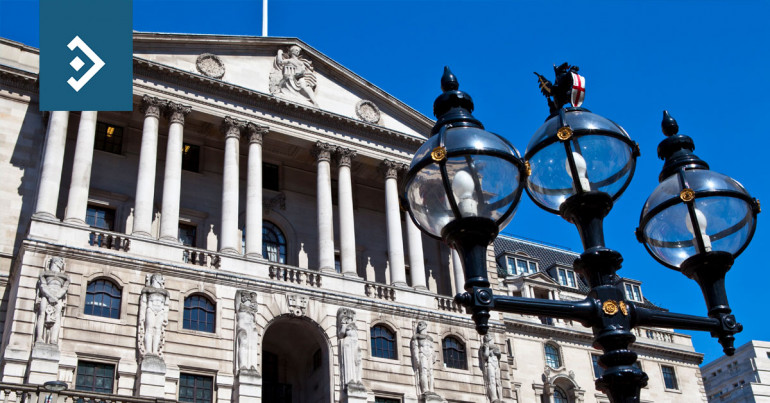
Bailey outlines significant concerns
Morning mid-market rates – The majors
13th January: Highlights
- UK economy to worsen before recovery starts
- Significant support needed to avoid economic damage
- Growing debt piles concern ratings agencies
Unemployment likely to be well above 6%
Bailey echoed the sentiments of Chancellor Rishi Sunak in commenting that the economy will suffer further before any improvement starts.
Bailey is encouraged by the rollout of the vaccination programme but sees that as a medium-term benefit while the current lockdown measures are hitting the retail and hospitality sectors particularly hard.
The trajectory of any recovery has been significantly flattened by the latest restrictions and a double-dip recession cannot be ruled out. Bailey expects the performance of the economy to be broadly in line with the Bank’s economic forecasts which were last updated in November.
The unemployment rate is most likely already above 6% but the Governor is optimistic that the expected peak of 7% – 8% which was expected to be reached in the summer will now be lower due to the extension of the Government’s job retention schemes.
A cut in interest rates to below zero will be discussed at the next MPC meeting in the first week of February but a decision remains in the balance. Such a move would cut borrowing costs for businesses and households but the medium to long-term effects of such a radical step are yet to be still unclear.
The MPC has already agreed to study the effect of the latest £150 billion package it introduced at its last meeting as well as the effect of Brexit before making any further decisions.
Traders remain undecided about the next move for the pound. It is recovering from last week’s lows versus the single currency but remains under a little pressure against the dollar.
Versus the euro it reached a high yesterday of 1.1211, closing at 1.1196. Versus the dollar, it recovered a little poise reaching 1.3668, closing at 1.3665.
Considering your next transfer? Log in to compare live quotes today.
FOMC members calling for more support
One of the more vociferous has been Cleveland Fed. President Loretta Mester, who commented that she believes that the economy will need further monetary and fiscal support if it is to recover from the current low level of growth and economic activity.
Similarly, to the Bank of England, the FOMC remains confident that its most recent advance guidance is still on track to be met.
Mester also believes there will be a marked contrast between economic performance between now and the end of June, compared to the second half of the year.
As well as a commitment to further stimulus in the shape of direct support targeted towards those directly affected by the Pandemic, President-Elect Biden is going to have to consider a package of measures to fight unemployment which is now the major barrier to the recovery.
The new President also faces a major problem over the rollout of the Covid vaccine. It has been rumoured that take-up of the offer of vaccination has so far been critically low as the man in the street admits to concerns over both its effectiveness and any side effects.
While this is a typically American response to such a major public health initiative, such actions if repeated right across the country will have a significant effect on the length of the Pandemic and the recovery of both the public and the economy.
The dollar index slowed its recent correction yesterday, it fell back to challenge the 90 level but remained just above it, closing at 90.03.
Moves the impeach the sitting President continue and are diverting the attention of Congress away from further support packages. Thankfully, this will be over soon and the business of surviving then recovering from the Pandemic can begin in earnest.
Lockdowns could last another 8-10 weeks
However, the levels of debt being taken on by several members of the European Union as they try to recover from the economic effects of the Pandemic have regained their attention.
Fitch, one of the most prominent agencies has voiced its concerns over investors ploughing money into Government debt while ignoring the corporate bond markets.
Banks have been accused of buying Government debt in never previously seen quantities and ignoring their obligation to their clients as they see the investment as virtually risk free, while private investment portfolios begin to look more than a little top heavy.
Not only is such a concentration dangerous, risking a domino effect similar to the financial crisis but there is also a fear that this can lead to a slowdown in the economy since placing funds in Government securities naturally affects the corporate investment needed to grow the economy.
Banks, including JP Morgan Chase and UBS are revising their forecasts for the EU economy lower following a review of the expected length of the current lockdowns.
German Chancellor Angela Merkel, who will leave Government very soon believes that the current lockdown in Germany may need to stay in place for a further 8-10 weeks.
Disappointment over the pace of delivery of the vaccine have led to further concerns about the pace of the recovery and when the Union can expect to reach the level of growth seen before the virus struck.
The euro did regain a little poise yesterday after its recent correction. It rose to a high of 1.2208, closing just three pips below the high.

About Alan Hill
Alan has been involved in the FX market for more than 25 years and brings a wealth of experience to his content. His knowledge has been gained while trading through some of the most volatile periods of recent history. His commentary relies on an understanding of past events and how they will affect future market performance.”



